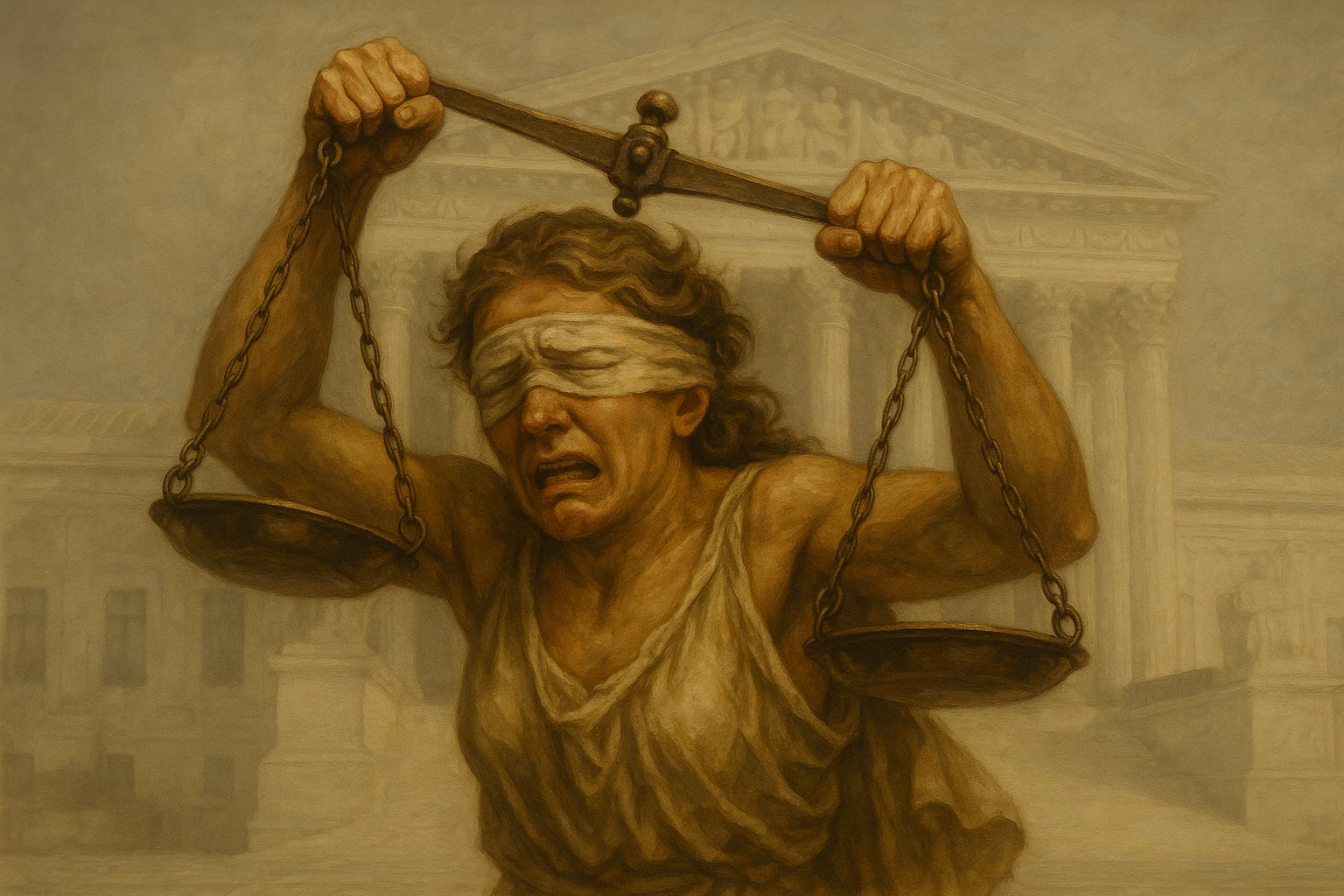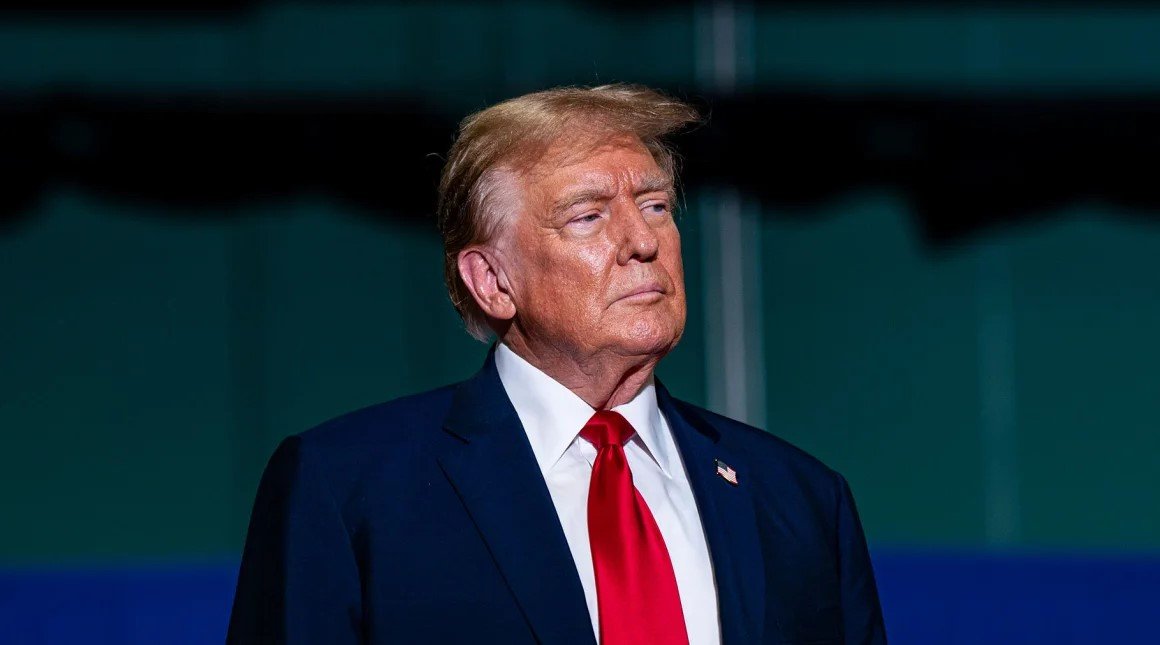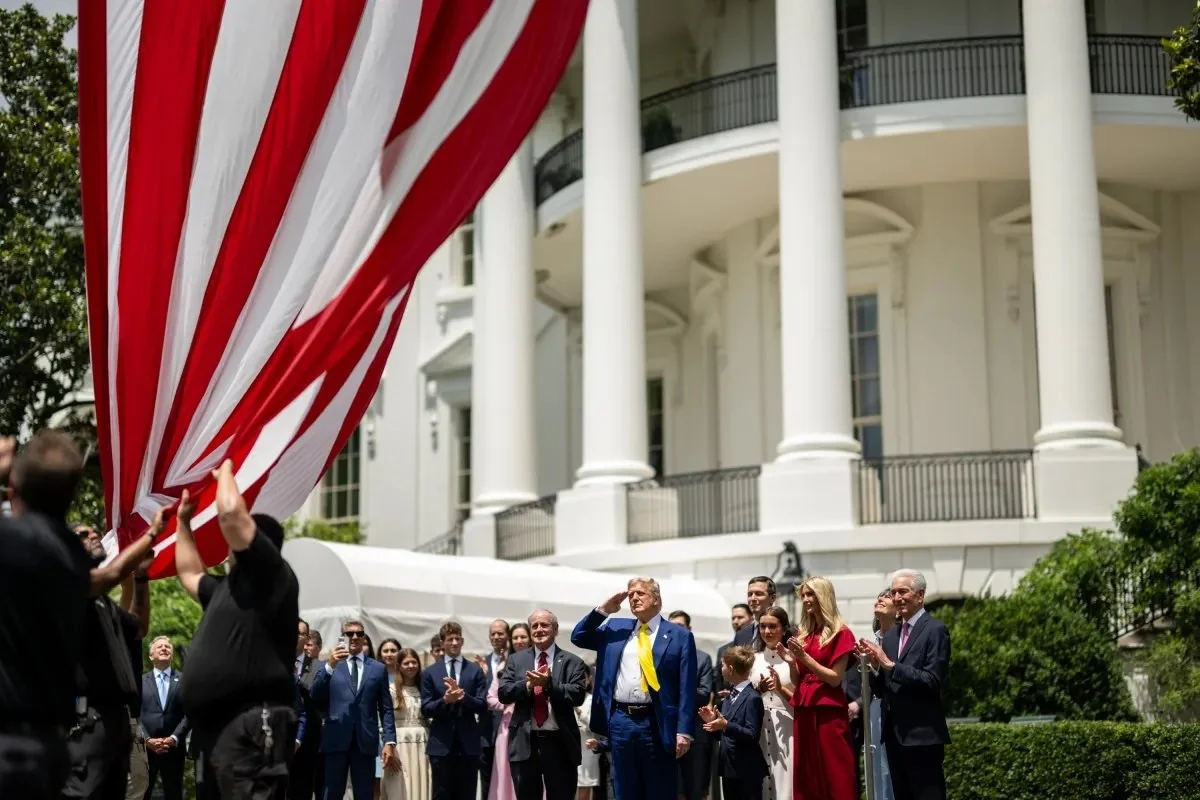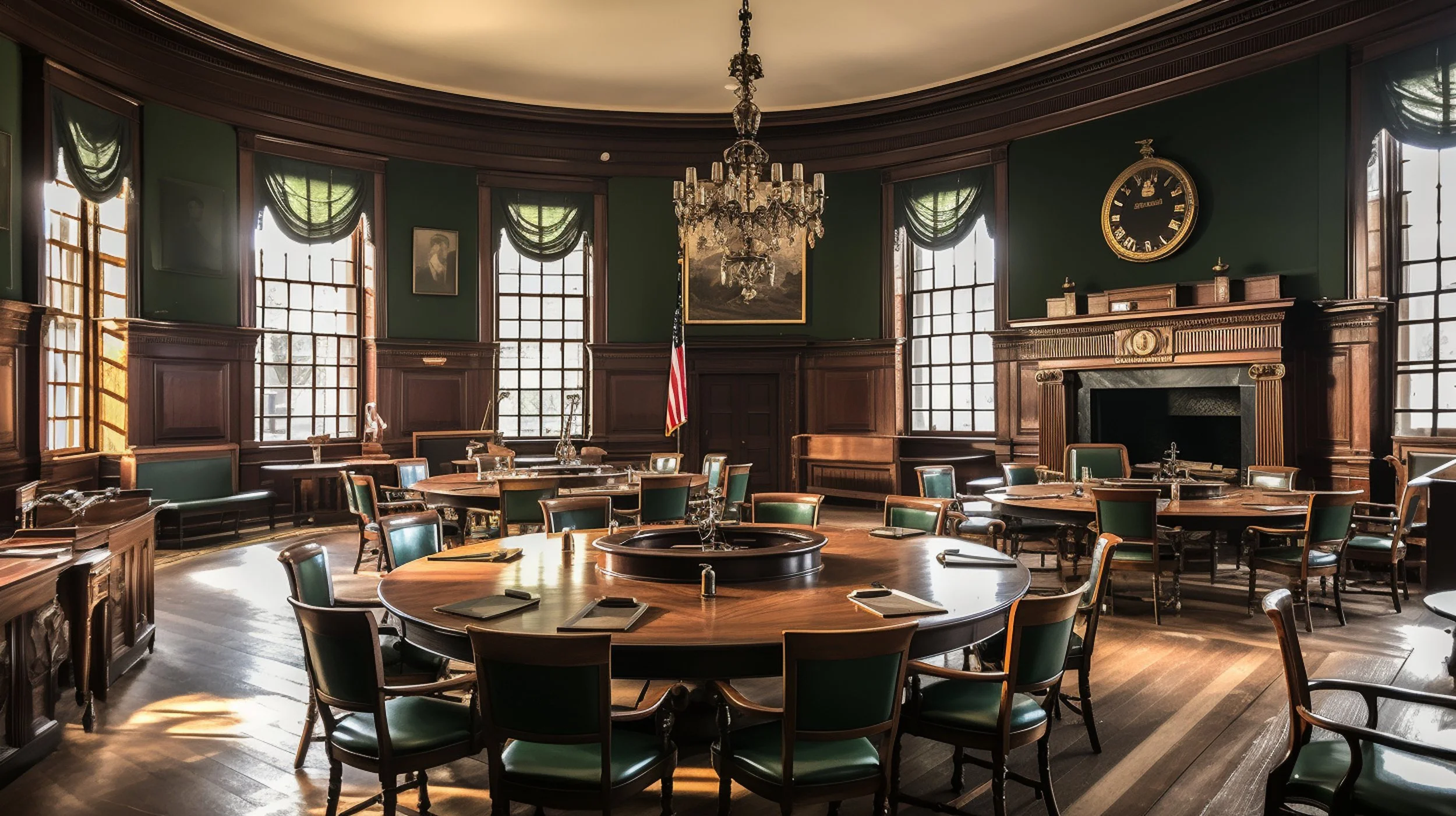The Top Law Enforcer?

Opinion By Team Thomas
Photo Credit: Thomas Media via AI
Laughing in the mirror, we assume …
When Donald Trump declared today that he is the chief law enforcement officer of the United States, he was not just flexing rhetoric, he was mangling constitutional reality. The irony is thick, the consequences are serious, and the claim exposes a dangerous misunderstanding of the line between presidential authority and the rule of law.
Constitutional Duty vs. Constitutional Title
The President of the United States is vested by Article II with the executive power of the nation. He is required to “take care that the laws be faithfully executed.” That mandate gives the President ultimate supervisory authority over the Department of Justice and federal law enforcement agencies. But it does not make the President the “chief law enforcement officer.”
That formal designation belongs to the Attorney General, who leads the Department of Justice, prosecutes cases, and ensures impartial enforcement of federal law. Presidents may set enforcement priorities, but they cannot, under constitutional design, be prosecutor, judge, and jury.
Irony and Conflict
Here lies the irony. Donald Trump, a convicted felon, now lays claim to the mantle of America’s top law enforcer. By his logic, the nation’s highest constitutional office simultaneously shields him from accountability and endows him with prosecutorial supremacy. The contradiction is self-evident: the same man convicted of breaking the law declares himself the ultimate arbiter of it.
This is not a mere gaffe. It is a political position with teeth. It seeks to rewrite the separation of powers into a single person’s grip where the President directs not just policy, but prosecution. In such a world, political enemies become legal targets and personal allies stand above the law.
A History of Legal Woes
Trump’s assertion is further undercut by his long record of legal entanglements:
The Trump Foundation: Ordered shut down in 2018 after New York authorities found it engaged in “a shocking pattern of illegality,” including using charitable funds for personal and political purposes.
Civil Fraud Judgment: Found liable in a civil fraud case in New York, where a judge concluded Trump systematically inflated asset values to deceive lenders and insurers.
Felony Convictions: Convicted on 34 felony counts in New York for falsifying business records in connection with hush-money payments intended to influence the 2016 election.
Other Investigations: Entangled in ongoing cases ranging from the handling of classified documents at Mar-a-Lago to efforts to overturn the 2020 election.
This is not the résumé of a “chief law enforcement officer.” It is the dossier of a man repeatedly colliding with the law he now claims to embody.
A Troubling Precedent
Trump is not the first president to blur this line. Richard Nixon once told David Frost, “When the president does it, that means it is not illegal.” That statement helped define the scandal that ended his presidency. Trump’s claim carries the same authoritarian echo.
For Americans who value an independent judiciary and impartial justice system, the President is the executive, not the enforcer. To call him the “chief law enforcement officer” is to flatten the checks and balances carefully designed to prevent kingship.
The Real Chief Law Enforcement Officer
In truth, the Attorney General holds that mantle, and the position is meant to operate at arm’s length from the Oval Office. That distance is not a bureaucratic nicety. It is the firewall between political will and legal judgment.
Donald Trump’s insistence otherwise is more than ironic; it is corrosive. It signals to his supporters that constitutional guardrails are expendable and to his critics that the rule of law is under siege.
Closing Reflection
The President is the chief executive, not the nation’s prosecutor-in-chief. For a convicted felon to declare otherwise is not just irony - it is a constitutional insult. The danger of such claims is not their absurdity, but their capacity to erode the very separation of powers that defines our republic.




